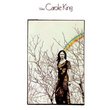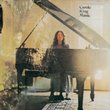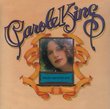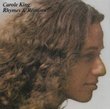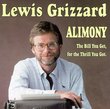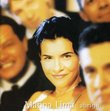| All Artists: Carole King Title: Fantasy Members Wishing: 3 Total Copies: 0 Label: Sony Release Date: 3/1/1991 Genres: Folk, Pop, Rock Styles: Adult Contemporary, Singer-Songwriters, Soft Rock, Oldies Number of Discs: 1 SwapaCD Credits: 1 UPC: 074643496223 |
Search - Carole King :: Fantasy
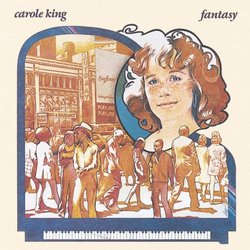 | Carole King Fantasy Genres: Folk, Pop, Rock
Limited Edition Japanese pressing of this album comes housed in a miniature LP sleeve. 2007. |
Larger Image |
CD DetailsSynopsis
Album Description Limited Edition Japanese pressing of this album comes housed in a miniature LP sleeve. 2007. Similar CDs
|
CD ReviewsAn absolute hidden gem finulanu | Here, there, and everywhere | 11/22/2007 (5 out of 5 stars) "Hey, now she's branching out! "Directions" sounds like Curtis Mayfield! And "You've Been Around Too Long" and "Haywood" could be Isaac Hayes tunes! And "Being at War with Each Other" sounds like Carole King, but that's okay since it's very well-written. The focus of the lyrics is not on love here, but rather on social statements about the state of the world, including a sympathetic portrait of a young single mother ("That's How Things Go Down", with amazing keyboards; "Weekdays", a jazz-pop sketch of suburban life and love; the dramatic, sax-packed "Welfare Symphony" suite is about exactly what you'd expect). Even song fragments like "A Quiet Place to Live". Believe it or not, the weakest track is the hit ballad, the country-folk love song "You Light up My Life". I could do without it, but it's not a bad song by any means. Just nothing she didn't do better on Tapestry, that's all. Much better is the driving Latin-funk number "Corazon". And the jazzy optimism of "Believe in Humanity". I think this is slightly better than Tapestry (and way better than Jackson Browne, unless Lawyers in Love turns out to be the best album ever made by anybody, which I doubt), because there's no "Smackwater Jack" gumming up the works." A fantasy yes, but reality says it's brilliant B. E Jackson | Pennsylvania | 04/01/2008 (5 out of 5 stars) "You know, everyone tells me Tapestry is the best Carole King album, but to me the songs on that album just don't have that special something the ones on Fantasy have. This is truly a forgotten masterpiece. Carole King's style of blending country western, blues, and rock and making the formula work is mind-boggling to me. Now throw in memorable songwriting and you have yourself a winner folks. Fantasy is fantastic from beginning to end. Each song is highly melodic and soothing and takes you back to the early 70's. The peaceful vibes that breathe all through the album totally convince me Carole King deserves to be remembered forever. I say get Tapestry AFTER you get Fantasy. I love the album cover of Fantasy with the face looking at me and the western town and people, and I love the music too. The first time I heard this album was on a very hot summer night here in southeast Pennsylvania in my bedroom. The bugs were crawling all over the windows, and the humid air was making it hard to concentrate. However, that didn't stop me from giving Fantasy a chance. It was great. To me, while a small memory to many that might not mean a whole lot, to me that was a great time and I will never forget the memory I had that night playing this album and feeling what it was like to be alive back in the 70's and living in s small midwestern town." In Fantasy You Can Be Whatever You Please Andre S. Grindle | Brewer Maine | 01/28/2009 (5 out of 5 stars) "It goes without saying Carole King had one of the most amazing career of anyone who entered the singer/songwriter movement of the early 70's.A year and a half earlier her Tapestry really broke the door wide open on this movement.True Carole,James Taylor and Carley Simon really helped popularize the style but at the same time the black community were paying attention as well. Funk and soul were beginning to come into their own as artists from Detroit,Chicago and Memphis began expressing themselves more freely in the creative sense,and taking more control over their music.The social statements baught on by this hybrid resulted in a kind of R&B version of the singer/songwriter movement that result in classics by the like of Bill Withers' Just as I Am,1970's Donny Hathaway or even such obscure latter day gems as Terry Callier'sWhat Color Is Love or 1976's Joan Armatrading. Basically speaking this style of singer/songwriter soul made it's impact on Carole King early on,and this album is the next logical step. In many ways this is King's most R&B oriented release-somewhat of a continuation of what Laura Nyro started in the 1960's.Only the musical tide has changed and Laura employs members of the jazz funk band The Crusaders to beef up her sound that put her in the vanguard of this relatively new subgenre.Interwoven between more intros,interludes and almostr jazzy instrumentals such as "Welfare Symphony" are down and out funk such as "You've Been Around Too Long" and the story song "Haywood",both weaving personal tales loosely interelating with themes of everyone in an inner city area in with sweet,string drenched,horn soaked grooves right out of the Curtis Mayfield style school. "Believe In Humanity" is a more blatant humanist statement set to a more blatant groove out of the Billy Preston style school;all of this is extrodinarily funky stuff.This album is laregely remembered for it's it "Corazon'",a tune that actually fairly uncommerical in it's Brazillian jazz-funk groove kind of way.This is the kind of thing that makes you realize how random the selection of hits are from respective albums. Of course that doesn't mean the ballads aren't soulful;Carole's always were but "Directions","A Quiet Place" and even the softer "Being At War With Each Other" definately have it in abundance. Taken together this suite of songs do not merely showcase some kind of stylistic excercise but how close Carole's music (as well as much of singer/songwriter pop to begin with) is to soul and funk in many ways. James Taylor's 1976 album In the Pocket has the very same quality in many ways. But this is one of the earlier concepts of blending the two genres so one could'nt tell where it ended or began. And it's more then worth anyones time who chooses to give it a chance."
|

 Track Listings (13) - Disc #1
Track Listings (13) - Disc #1